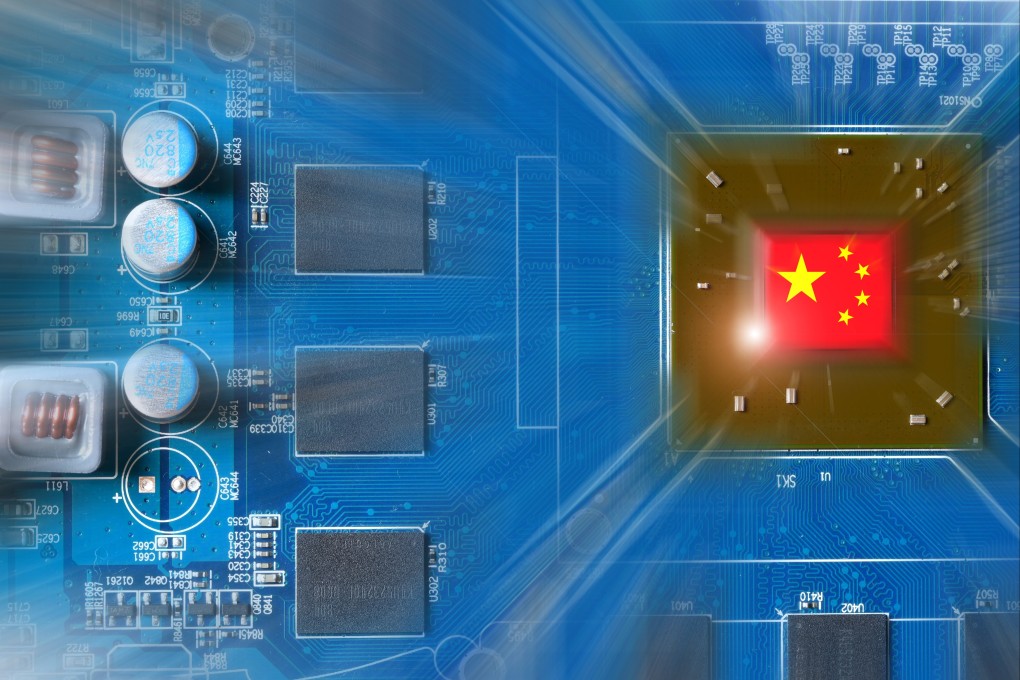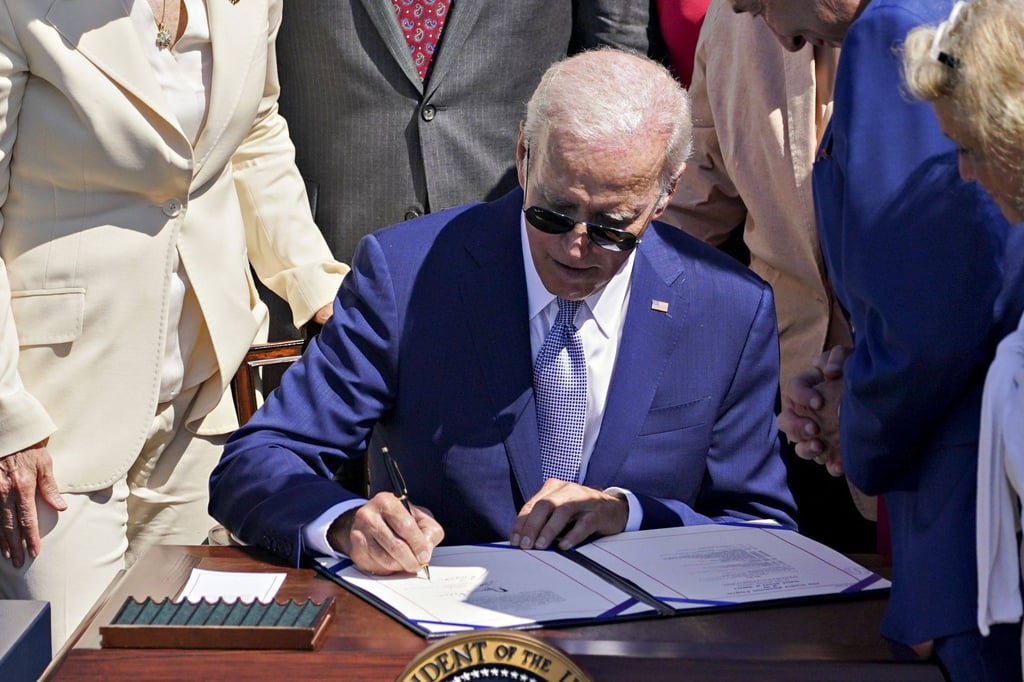Tech war: China’s semiconductor trade group sees ‘hostile’ environment after US Chips Act but no quick remedies found
- Global supply chains will be ‘shortened’ and depend more on local suppliers as commercial interests give way to national security concerns, experts say
- US export controls will likely be more fine-tuned, with stricter restrictions in advanced areas and leniency in mature semiconductor technology

China’s chip industry trade group gathered compliance lawyers, scholars and executives on Thursday to brainstorm possible responses to the US Chips and Science Act, which it says has created a ‘hostile’ environment for the country’s own semiconductor industry development.
A webinar hosted by the China Semiconductor Industry Association (CSIA), the state-backed body with 744 members, concluded that the country’s chip industry will have to rely more on itself to develop over the long term.
More than 300 representatives from chip-related firms in China took part in the webinar, an indication of the demand for expertise and guidance in an industry under pressure to cope with expanding US trade restrictions and meet Beijing’s semiconductor self-sufficiency goals. At the same time, Chinese experts warned that chip companies must prepare themselves for more turbulence.
“China’s semiconductor industry will face a more dire environment ahead because it has become the focus of a geopolitical game, and China is the top US target,” Cheng Hui, director of the Institute of Trade and Investment Security at China’s Ministry of Commerce, said during the webinar.
Cheng said global supply chains will be “shortened” and depend more on local suppliers to meet market demands as pure commercial interests give way to national security concerns, political allegiances and ideology, and values such as human rights.
China is facing difficulties in pressing ahead with development of its domestic semiconductor industry, as the US tightens export controls on advanced chipmaking equipment and design software, two areas of extreme weakness for China.

The CSIA, as well as China’s foreign ministry and commerce ministry, have publicly voiced dissatisfaction with the US Chips Act, which prohibits companies receiving US subsidies from investing in advanced chipmaking capacity in China. However, China has yet to come up with any effective countermeasures.
